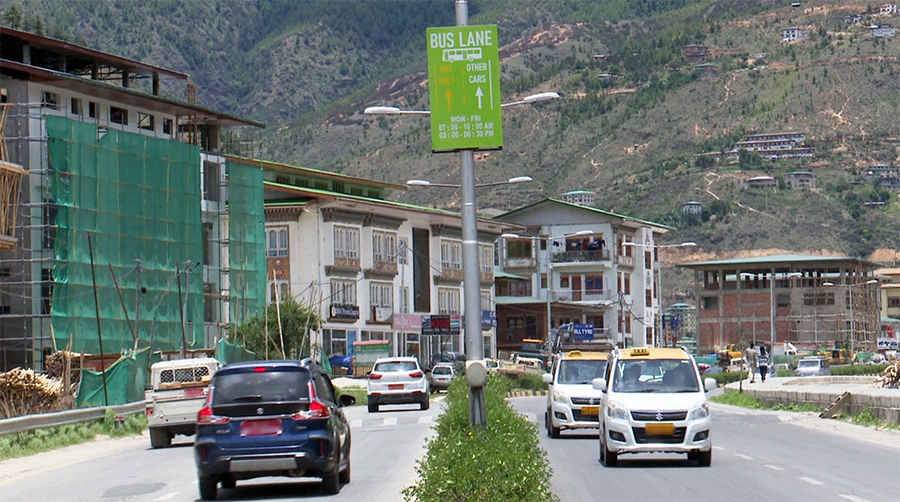
In a bid to improve bus services in the capital, the Thimphu Thromde is planning to pilot a bus priority lane project. Under it, the left lane of the expressway from Babesa to Changzamtog will be designated as a Bus lane during certain hours. Only public transport buses and emergency vehicles like ambulances, firefighters and the police will be allowed to use it during the designated time. The initiative will be implemented from next month.
The City Bus Service Office of the Thimphu Thromde says the Bus Priority Lane will function only during peak hours, from 7 to 10 in the morning and 3 to 6:30 in the evening.
Besides making the city bus service more efficient, they say the initiative will also reduce traffic congestion as more people are likely to choose city buses over driving one’s own car.
“So once we have the bus lane, the bus will be on time efficiently, and then people will have trust in us. The bus service that way will be able to improve the service. This will not only help us in cutting down the number of vehicles on the road, but we will also help us reduce carbon emissions and also help towards reducing the huge fuel imports we are making from outside,” said Pasang Tshering, officiating director of City Bus Service Office.
The office has already started sensitising the people about the initiative through announcements and video advertisements.
BBS talked to a few people who expressed mixed reactions to the idea.
“I personally feel like it is a good initiative from the Thromde because if the bus service is available at all times, it would be a good initiative, but during the peak hours, I felt that it may cause some traffic congestion on the roadside, which will lead to inconvenience,” said Tshering Dorji, a resident.
“When the bus lane is made, it’s convenient for the bus driver because, during rush hours, the bus does not have to wait in line. Hence, it is convenient. And those who drive private cars will also ride the bus instead,” said Phub Tshering, a city bus driver.
“I think it could be problematic because if the bus drives on one lane and the taxis and private cars on the other, then traffic problems will be much worse than it is right now,” said Thinley Dorji, a taxi driver.
The City Service Office says if the pilot project is a success, they will extend it to other four-lane roads in the capital. And likewise, the office says the project will be called off if the outcome is not good.
Singye Dema
Edited by Yeshi Gyaltshen









